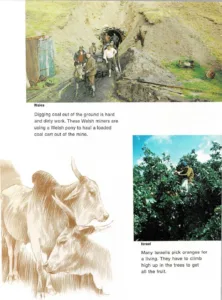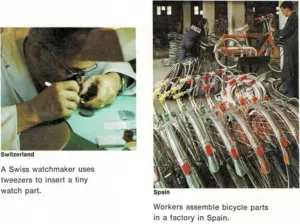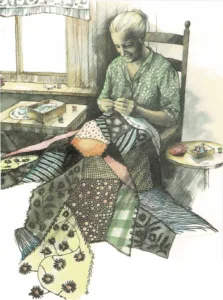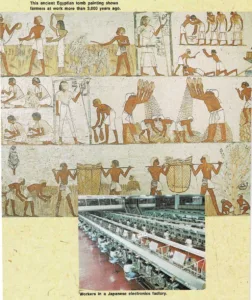The sun is shining on our backs.
In town, we shall be paid fish for our barley.
That was a song of Egyptian farmers, more than 3,000 years ago. Wall
paintings in ancient tombs show these farmers at work in their fields.
People have always had to work for a living. At first they hunted and
fished. Later, they learned to farm. They made most of their own
clothes, tools, and furniture. They traded some of the things they made,
or grew, or caught, for other things they needed. Then money was
invented. As people began to work for money, they used it to buy things.
Some of us still farm and fish. But we sell much of what we grow or
catch. Some of us have jobs making goods for others to buy. We are
craftsmen and factory workers. Some of us have jobs helping others. We
are teachers, scientists, policemen, doctors.
Year after year, we learn, we discover, we invent. As a result, we are
always finding more and different kinds of work to do.

The good earth
Kazino had set out early that morning. He had driven the cattle for an hour before finding enough grass for them to feed on. Now he brushed away the flies around his eyes and squinted at the sun. It…

Riches in the sea
When Per meets a neighbor, he usually says, “Godt fiske!” instead of “Good day!” Godtfiske means “good fishing” in Norwegian. And a good catch means a good day for all Norwegian fishermen. For…

Piece by piece
> Japanese, working on an assembly line, put television sets together > piece by piece. “We make small things in a big way.” That’s what Swiss factory workers say. Watches are one of the small…

We make the whole thing
Millions of look-alike socks and shoes, pots and pans, toys and toothbrushes tumble out of machines. But before there were machines, people made things by hand. And there are still people who make…

